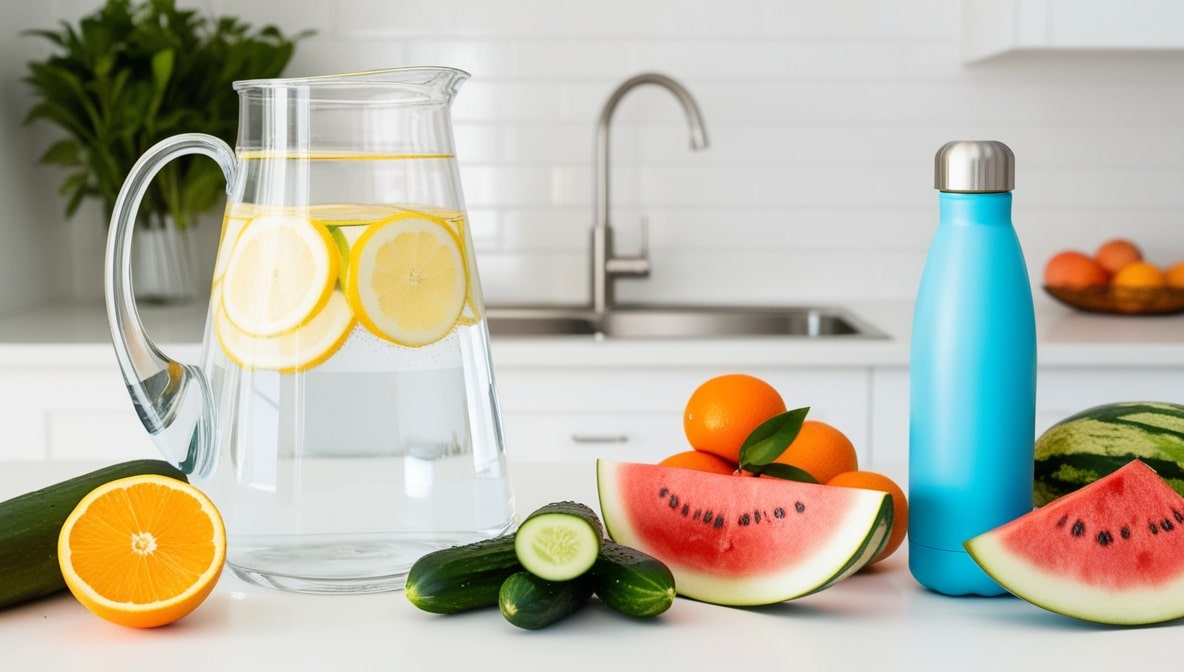Hydration is a fundamental aspect of maintaining overall health and well-being. While we all know the importance of drinking water, there are numerous myths and misconceptions surrounding hydration. Understanding the role of hydration in a balanced diet can help you make informed choices and debunk some common myths. Let’s dive into the facts about hydration and dispel the myths.
Why Hydration is Important
Water is essential for nearly every function in the human body. Here are some key reasons why staying hydrated is crucial:
- Regulates Body Temperature: Water helps to maintain a stable body temperature through sweating and respiration.
- Aids Digestion: Adequate hydration ensures proper digestion and nutrient absorption.
- Supports Kidney Function: Water helps flush toxins and waste products from the kidneys.
- Lubricates Joints: Water acts as a lubricant for joints, reducing discomfort and improving mobility.
- Maintains Skin Health: Proper hydration keeps the skin healthy and vibrant.
Myth 1: You Need to Drink 8 Glasses of Water a Day
One of the most common hydration myths is the “8×8 rule,” which suggests drinking eight 8-ounce glasses of water daily. While it’s a reasonable guideline, it may not be suitable for everyone. Individual water needs vary based on factors like age, weight, activity level, and climate.
Fact: Instead of fixating on a specific number, listen to your body. Thirst is a natural indicator of hydration needs. Aim to drink water consistently throughout the day and adjust your intake based on your activity and environment.
Myth 2: Only Water Counts Towards Hydration
Many people believe that only plain water contributes to hydration, dismissing other beverages and foods. While water is the best choice, it’s not the only source of hydration.
Fact: Beverages like herbal teas, milk, and even coffee (in moderation) can contribute to your daily fluid intake. Additionally, many fruits and vegetables, such as cucumbers, oranges, and watermelon, have high water content and help keep you hydrated.
Myth 3: Caffeinated Drinks Dehydrate You
Caffeine is often thought to be dehydrating, leading to the belief that coffee, tea, and other caffeinated beverages don’t count towards hydration.
Fact: While caffeine has a mild diuretic effect, which means it can increase urine production, it doesn’t negate the hydration provided by the beverage. Moderate consumption of caffeinated drinks can still contribute to your overall fluid intake.
Myth 4: Clear Urine Means You’re Properly Hydrated
The color of your urine is often used as an indicator of hydration status, with clear urine seen as a sign of adequate hydration and dark urine as a sign of dehydration.
Fact: While urine color can be a helpful indicator, clear urine isn’t always necessary or ideal. Light yellow urine generally indicates proper hydration. Completely clear urine can mean you’re overhydrating, which can dilute essential electrolytes in your body.
Myth 5: You Can Only Hydrate by Drinking
Some believe that drinking liquids is the only way to stay hydrated, overlooking the hydration benefits of food.
Fact: Many foods, particularly fruits and vegetables, have high water content and significantly contribute to your hydration. Incorporating water-rich foods like strawberries, celery, and lettuce into your diet can help you stay hydrated.
Tips for Staying Hydrated
- Carry a Reusable Water Bottle: Having water readily available can remind you to drink throughout the day.
- Eat Hydrating Foods: Include a variety of fruits and vegetables in your meals and snacks.
- Set Reminders: Use phone apps or alarms to remind yourself to drink water regularly.
- Flavor Your Water: If plain water is unappealing, add slices of lemon, cucumber, or mint for a refreshing twist.
- Monitor Your Hydration: Pay attention to your thirst, urine color, and overall well-being to gauge your hydration status.
Conclusion
Hydration is a critical component of a balanced diet and overall health. By understanding the facts and debunking the myths, you can make informed choices about your fluid intake. Remember that hydration isn’t just about drinking water; it’s about maintaining a balance that suits your body’s needs through a combination of beverages and hydrating foods. Listen to your body, stay aware of your hydration status, and make adjustments as needed to ensure you stay properly hydrated and healthy.

